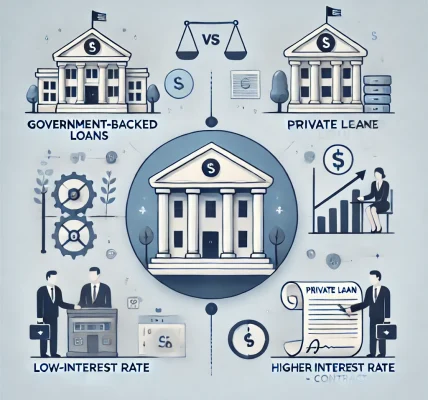Introduction
Filing an insurance claim can be a stressful and time-consuming process. Delays in claim approval can create financial strain, especially if you’re dealing with medical bills, car repairs, or property damage. However, there are strategies to expedite the process and ensure you receive your claim settlement faster.
In this guide, we’ll explore expert tips to speed up your insurance claim approval while avoiding common pitfalls that could lead to unnecessary delays.
1. Understand Your Insurance Policy
One of the primary reasons for claim delays is lack of awareness about policy coverage. Before filing a claim, review your policy to understand:
- Coverage limits and exclusions.
- Deductibles and out-of-pocket costs.
- Required documentation for claim processing.
Tip: If you’re uncertain about any clause in your policy, contact your insurance agent or customer service for clarification.
2. File Your Claim As Soon As Possible
Time is crucial when it comes to insurance claims. The sooner you file your claim, the faster it can be processed. Delays in reporting the claim can lead to complications, including claim denial.
Steps to File a Claim Promptly:
- Notify Your Insurance Company: Most insurers have a 24/7 claims hotline or online portal.
- Provide Basic Information: Policy number, date, time, and details of the incident.
- Follow Up Regularly: Stay in touch with your insurer for claim updates.
3. Gather All Necessary Documents
Incomplete or missing documentation is a leading cause of claim delays. Insurance companies require proof to assess the validity of a claim.
Essential Documents You May Need:
- Incident Report: Police report (for car accidents, theft, or fire).
- Photographs/Videos: Clear images of damage, injuries, or affected property.
- Medical Records & Bills: If claiming for medical expenses.
- Repair Estimates: Invoices from repair shops, contractors, or service providers.
- Witness Statements: If applicable, to support your claim.
Tip: Keep digital copies of all documents in a secure cloud storage to access them quickly.
4. Be Honest and Accurate
Providing false or misleading information can result in claim rejection and even legal consequences.
How to Ensure Accuracy:
- Double-check all submitted forms.
- Provide exact details of the incident without exaggeration.
- Avoid contradictions in statements made to different parties (adjusters, police, etc.).
Tip: If you’re unsure about a detail, mention that in your claim rather than making assumptions.
5. Cooperate With the Insurance Adjuster
An insurance adjuster is assigned to assess the claim and verify its legitimacy. Delays in communication with the adjuster can slow down approval.
How to Work Effectively With an Adjuster:
- Be available for inspections and interviews.
- Provide all requested documents without delay.
- Ask for a timeline for claim processing.
Tip: Keep a log of all interactions with your adjuster, including emails and call records.
6. Follow Up Regularly
Many claims get delayed because claimants fail to follow up. Insurance companies handle thousands of claims, and a proactive approach can keep your claim moving.
Effective Follow-Up Strategies:
- Call or email your claims representative weekly.
- Politely ask for an estimated timeline for approval and payout.
- If there’s a delay, request a reason and steps to resolve it.
Tip: Use written communication (emails, messages) for documentation in case of disputes.
7. Work With a Public Adjuster If Needed
If your claim is complex or involves a high-value settlement, a public adjuster can help negotiate with your insurer.
Benefits of Hiring a Public Adjuster:
- Expert evaluation of damages and claim amount.
- Better negotiation for fair settlement.
- Faster resolution of claim disputes.
Tip: Ensure the public adjuster is licensed and has good reviews before hiring.
8. Avoid Common Claim Mistakes
Certain mistakes can result in unnecessary delays or even claim denial.
Mistakes to Avoid:
- Not reporting the claim immediately.
- Providing incomplete documentation.
- Ignoring insurance company calls/emails.
- Making repairs before inspection.
- Exaggerating damages or losses.
Tip: Read your insurer’s claim guidelines carefully to avoid mistakes.
9. Request an Advance Payment (If Applicable)
For major claims (e.g., property damage after a disaster), insurers may offer an advance payment to cover immediate expenses before full settlement.
How to Request an Advance:
- Ask your adjuster if an advance is possible.
- Provide evidence of urgent expenses.
- Ensure the advance is deducted properly from the final claim amount.
Tip: Advance payments are helpful but should be used wisely to avoid financial issues later.
10. Escalate the Claim If Necessary
If your claim is taking too long or you feel it’s being unfairly handled, consider escalating the matter.
Steps to Escalate a Claim:
- Speak to a Senior Representative: Contact a supervisor at the insurance company.
- File a Complaint: If unresolved, file a complaint with your state’s insurance regulatory authority.
- Seek Legal Advice: If necessary, consult a lawyer specializing in insurance claims.
Tip: Keep a record of all interactions before escalating to show your due diligence.
Conclusion
Speeding up your insurance claim approval requires preparation, prompt action, and effective communication. By understanding your policy, submitting complete documentation, cooperating with the adjuster, and following up regularly, you can significantly reduce delays and receive your settlement faster.
If you face challenges, don’t hesitate to seek professional help from a public adjuster or legal expert. Being proactive and well-informed is the key to a smooth and swift claim process.
Would you like a checklist or additional resources for quick reference? Let us know!




